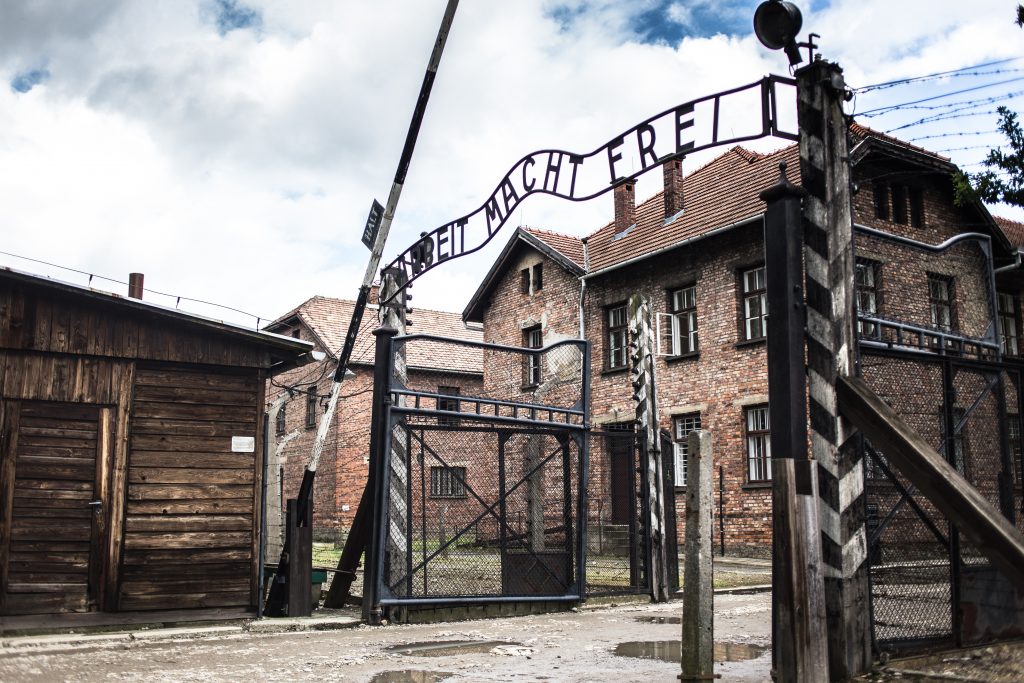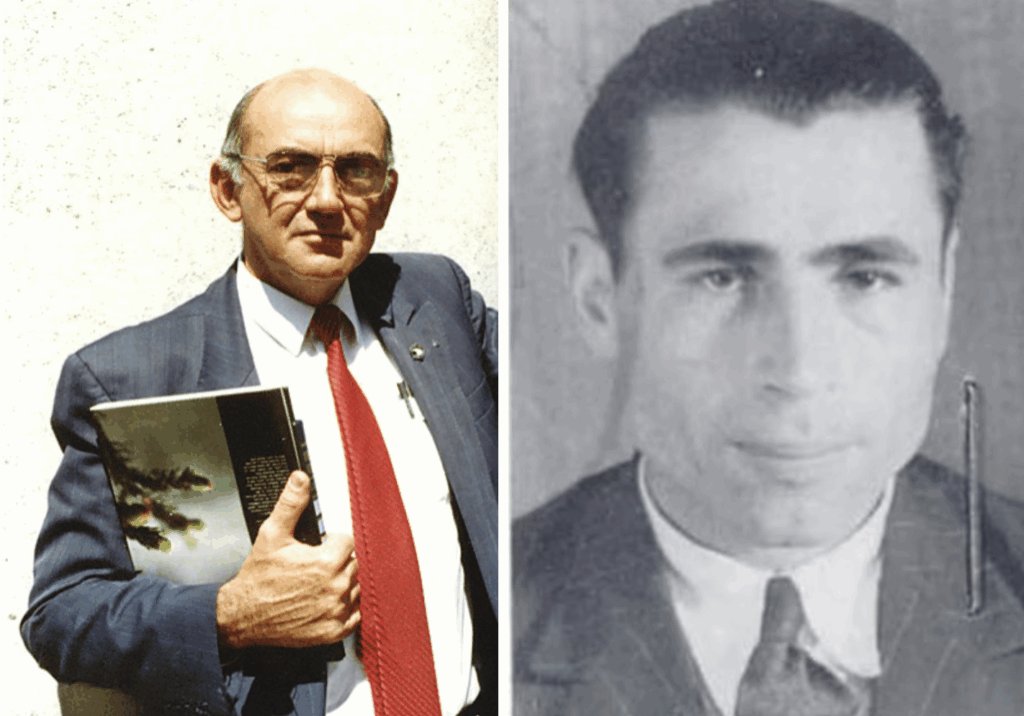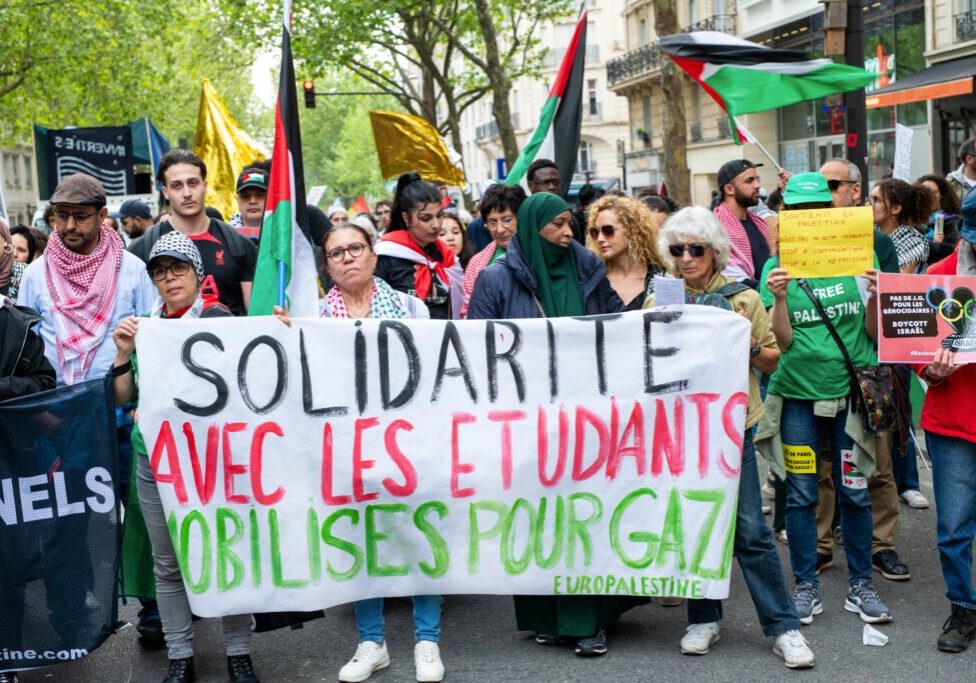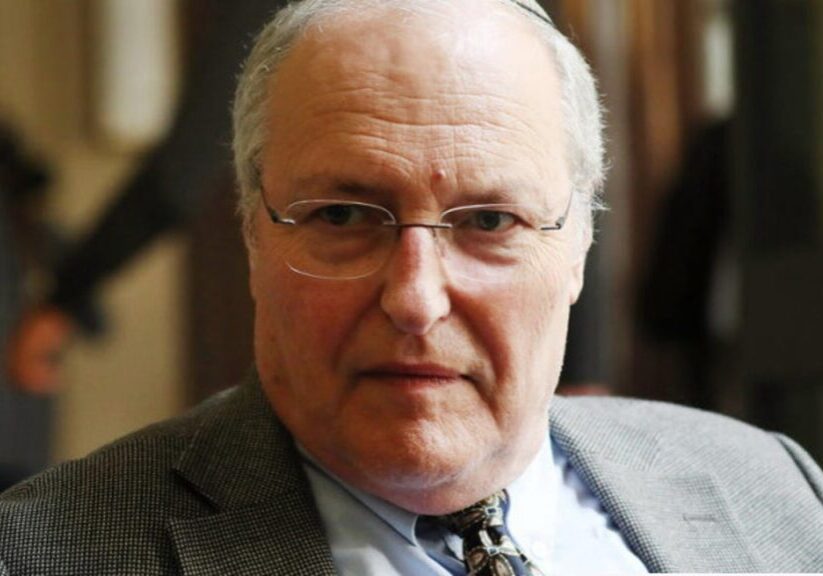Australia/Israel Review
Europa Europa: A Terrible Ordinariness
Nov 23, 2021 | Alex Benjamin

I’m just back from Krakow – as part of a delegation to Auschwitz that we at the European Jewish Association organised for 160 ministers of education and parliamentarians across Europe to mark the 83rd anniversary of Kristallnacht.
Why link Kristallnacht with Auschwitz? As I explained to a journalist, it was important to show what started with smashing windows and burning synagogues led to in a few short years.
For many of the participants, it was their first time there. And they were deeply moved. As for me, having been before, I watched their reactions with interest – and, if I’m honest, puzzlement. Because the word that best sums it up to me, the word that makes me sick in the very deepest pit of my stomach, is how “ordinary” it is.
When I was a kid, like most of us, I grew up with the Holocaust. It was like foie gras in my family, rammed down my throat whether I wanted it or not. I sometimes wanted to just put my fingers in my ears. Because I regarded it as an unspeakable horror, and I just couldn’t get my head around the “why” of it.
What was so different about me and my family that we could, in the space of living memory, have been so utterly cast aside by society? Utterly destroyed, dehumanised, cast into the fire?
These questions still haunt me, and whenever I’m in this particular part of Poland, they are magnified. This is partly because, when I’m there, I get some understanding of how it happened. And it’s tied up in that sense of the “ordinary”.
I don’t know what the gates of Hell are meant to look like, but if you close your eyes and try to imagine it, I’m guessing you won’t picture bucolic countryside surrounding it; a McDonald’s drive-thru close by; parents pushing their children up the street in prams; kids loitering around bus stops trying to look cool and old people chatting outside the shops.
The gates of Hell have a parking lot, a pizzeria across the road and students in tight leggings and Ugg boots chewing gum whilst waiting to have a look inside. Our Jewish ground zero, literally the site of our worst nightmare, is an ordinary place. Right beside Auschwitz and Birkenau are houses, shops, a playground, bored dogs barking at cars, the half-constructed brick barbecue in a front garden that was never quite finished. Ordinary.
Auschwitz is terrifying to me, but not because of what happened inside those gates. As I said, I know the horrors, I was raised on them. No, it’s so terrifying because of what happened outside of them, so close, so palpably close. Within eyesight, there is a town where, even during the tough and brutal years of the war, life continued. Could they not smell the bodies burning? Could they not see the trains coming?
This is what I can’t reconcile at all. How ordinary life could continue, while our lives were being extinguished.
I think WH Auden hit on this feeling when he penned “stop all the clocks, cut off the telephone” about a funeral of someone so very close to him:
Stop all the clocks, cut off the telephone,
Prevent the dog from barking with a juicy bone,
Silence the pianos and with muffled drum
Bring out the coffin, let the mourners come.
The Shoah is so visceral. So raw, so utterly painful to confront that I think (and hope) that a lot of Jews feel like Auden does about his dear friend. That life can never go back to normal because of it.
And yet it does.
That scares me. It scares me that people can tuck into their margherita pizza across the road from the Auschwitz Museum after the tour is over.
It scares me too that surrounded by this ordinariness, just as it was all those years ago, Auschwitz-Birkenau and what it represents is not potent enough.
I want it to scream and howl at people. I want it to be desolate. I want it to be frozen in time. I don’t want to see an H&M and kebab shop nearby. I want it to be the hell that it was for all those who perished there, and the hell it is for Jews who visit it today.
The ordinariness of Auschwitz-Birkenau – to me anyway – is dangerous. It tells me that antisemitism can keep rising, even as tourists keep on going through those gates having apparently learned nothing – and worse, then get back to the football and order another drink to go with their kebab afterwards.
Would they drop their kebabs for us today if windows started being smashed again? Ordinary life continued then. I fear that it would today as well. The ordinariness of Auschwitz is a testament to this terrifying possibility.
Alex Benjamin is the Director of the European Jewish Association, a pro-Jewish, pro-Israel advocacy group based in Brussels – ejassociation.eu.
Tags: Europe, Holocaust/ War Crimes






